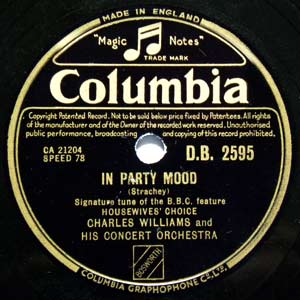
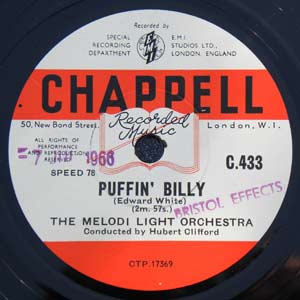
A programme called Children's Choice ran from 1952,
following the Housewive's Choice format. Children's Favourites
replaced it two years later. Until 1965 it was presented by Derek McCulloch,
known from Children's Hour as Uncle Mac. The Reithian spirit prevailed and
the programme included not just records made for children, or pop, but light
classical pieces and even hymns. The signature tune was Puffin' Billy.
The launch of Radios 1 & 2 saw the programme, now called Junior Choice,
broadcast on both channels with a new sig tune and more pop content. The
programme ran until 1982.
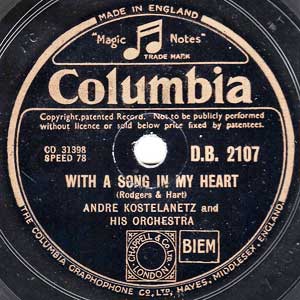
Related page
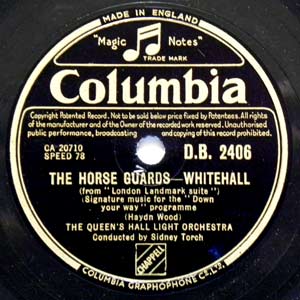
Down Your Way ran from 1946 to 1992, introduced
by Horse Guards, Whitehall from the London Lankmarks Suite
by Haydn Wood. The programme visited a different location each week, interviewing
residents and playing their choice of music. It was hosted by Stewart MacPherson
(1946-1950), Richard Dimbleby (1950-1955), Franklin Engelmann (1955-1972),
Brian Johnston (1955-1987) and then by a different host each week.
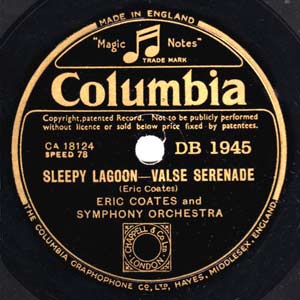
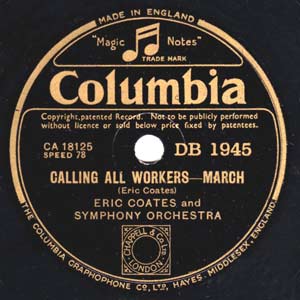
Another Coates piece, Calling All Workers, introduced
Music While You Work which began in June 1940. It was intended
to improve morale in wartime factories and thus increase productivity. It
continued after the war up until 1967 when the Light Programme ended. With
two editions a day, the programme was usually live, though some were recorded
in later years. It featured dance orchestras, brass and military bands,
light orchestras and small instumental groups.
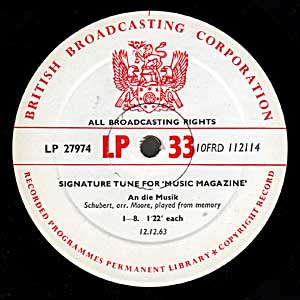
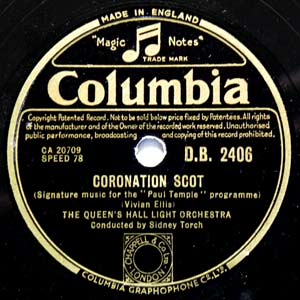
Originally broadcast from the 1930s to the 1960s Paul
Temple was a detective series. The signature tune was Coronation
Scot by Vivian Ellis. Paul and his wife Steve were played by several
actors over the years but probably the best known voices were those of Peter
Coke and Marjorie Westbury. Some of the stories have been remade in the
21st century with Crawford Logan and Gerda Stevenson in the lead roles.
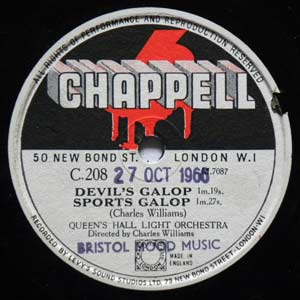
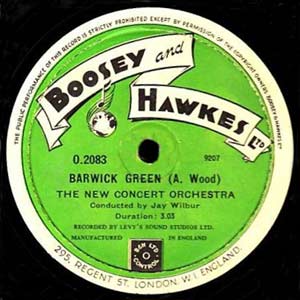
The Archers is the world's longest running
soap opera. It began in 1950 on the Midland Region of the Home service and
was broadcast in the Light Programme the following year, subsequently moving
to the Home Service and then Radio 4. The actor Norman Painting holds the
title of longest-serving actor in a single soap opera in the Guinness
Book of Records having played the part of Phil Archer from 1950 until
his death in 2009. The theme, Barwick Green by Arthur Wood, is still
used, though in a newer recording.
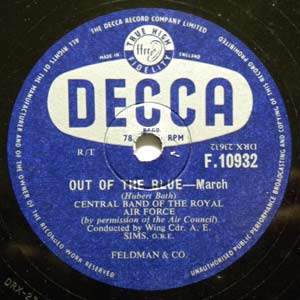
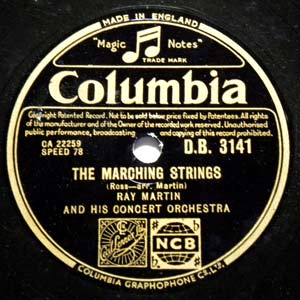
Top of the Form. began its 38 year run in
1948. Two teams of four pupils from secondary schools around the country
competed, answering general knowledge questions. The programmes were recorded
in the two competing schools which were linked by land-lines. The question
masters in later years were Tim Gudgin (1965–86), Bob Holness (1974–76),
Paddy Feeny (1965–86) and Geoffrey Wheeler (1962–75). A television version
ran from 1962 to 1975. Marching Strings was composed by Ray Martin (using
the pseudonym Marshall Ross).
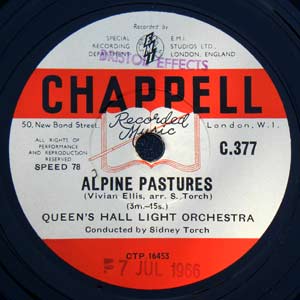
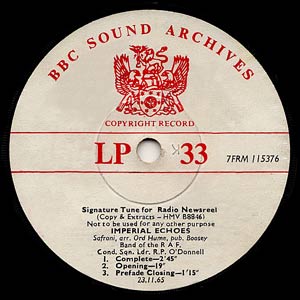
Imperial Echoes by Arnold Safroni introduced Radio
Newsreel. It started on the Overseas Service in 1940 and transferred
to the Light Programme in 1947. The domestic edition ended in 1970 but the
overseas editions continued for 18 more years. During the war US and Canadian
stations also carried the programme.
Related page
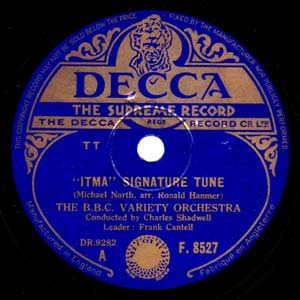
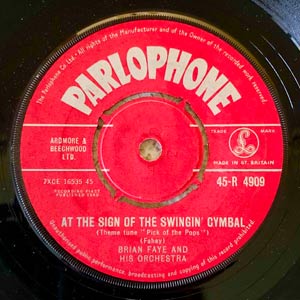
Pick of the Pops.
Two versions of "At the Sign of the Swingin' Cymbal" were used to introduce Pick of the Pops. This one was used
until 1966 and was by Brian Faye and his Orchestra. in 1970 it was replaced by a second jazzier and faster version
by Brass Incorporated. In addition to introducing the show it was used in the background during Alan Freeman's
rundown of the whole chart, which was followed by playing the Number One record of the week.
Some more comedy show openings
Hancock's Halfhour
Ray's a Laugh
Take It From Here
The Navy Lark
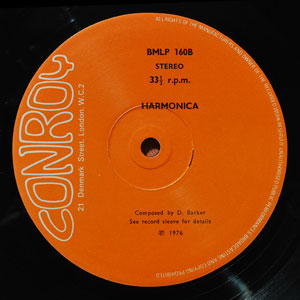
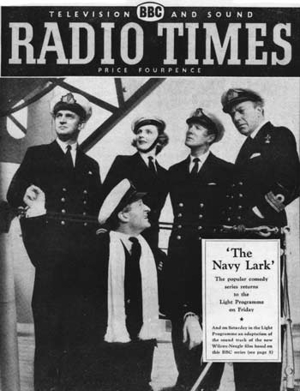
Fred Vintner, of the Navy Lark Appreciation Society, supplies this note:
Back in the days of a British Film industry and new TV stations (regional as well as national) young composers were desperate for a break into the big time. This meant a company like Barry Music (there were others) would record copyright free material and send the discs to broadcasters to sift through at leisure and if a tune was played, a royalty would follow.
A young 'Dwight Barker', real name Tommy Reilly, recorded six 78s of incidental music which varied in length from 5 seconds to 80 seconds in 1958. The library discs were BM 118, 201, 251, 252, 253, 254 which all got transferred to a single LP later.
The Navy Lark was commissioned in late 1958 and as the writing side of things was being started by Laurie (later Lawrie) Wyman, Alastair Scott Johnston was firming up in his mind, with the help of his secretary Evelyn Wells, how the sound of the show should be.
He wanted nautical references and to this end Evelyn plundered the BBC library and despite two and half days listening to stock recordings nothing 'worked' until the Tommy Reilly interludes were played, and both Alastair and Evelyn were smitten by the narrative in the music and its independent style.
Thence on all Navy Lark recordings were based on this collection of recordings.
I'm Sorry I'll Read That Again

